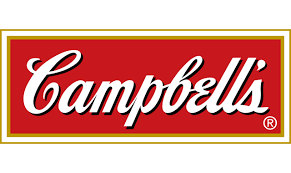 Campbell Soup Co. saw its shares plunge after it posted earnings that disappointed. The packaged food conglomerate also delivered a forecast that was weaker than was expected, bringing additional evidence that a slump industry wide remains in place.
Campbell Soup Co. saw its shares plunge after it posted earnings that disappointed. The packaged food conglomerate also delivered a forecast that was weaker than was expected, bringing additional evidence that a slump industry wide remains in place.
The weak outlook comes after shareholders were disappointed this week when Warren Buffett made a comment that put an end to speculation that Kraft Heinz may buy a company similar to Mondelez International.
Investors took those remarks as being a bearish signal for consolidation in the industry in general that meant it was less apt that a takeover of Campbell would provide them all a payday.
Adjusted earnings reached 52 cents per share, missing the analyst estimates of 55 cents. Sales were $1.66 billion against an estimate of more than $1.69 billion.
One analyst on Wall Street said that the bulk of Campbell’s business does not show signs of making a turn around and there have not been any new blockbuster products.
The company, based in Camden, New Jersey is expecting profit for the upcoming year to reach $3.11 per share, excluding certain items. That figure came up short of analyst estimates of $3.20 per share. Campbell sees its revenue ranging from between flat and down by 2%.
The report pushed Campbell stock down by 6.5% at one point on Thursday marking its largest decline intraday since February.
The stock already has fallen 17% during 2017 and is at its lowest point in the past two years.
During the last three years, the 10 largest companies in the packaged food industry have seen close to $16 billion worth of revenue evaporate due to consumers changing the way they shop and eat.
Shoppers are looking for foods that are more organic and natural shifting from staples that dominated shelve in supermarkets for many years.
Amazon.com’s recent deal to acquire Whole Foods Market has also fueled pessimism related to the giants of packaged food with analysts making predictions that the titan in e-commerce will favor products that are private label and squeeze profit margins of suppliers.
This past June, when the deal was first announced, the 10 largest food companies in the U.S. lost close to $8 billion of their combined market value.
